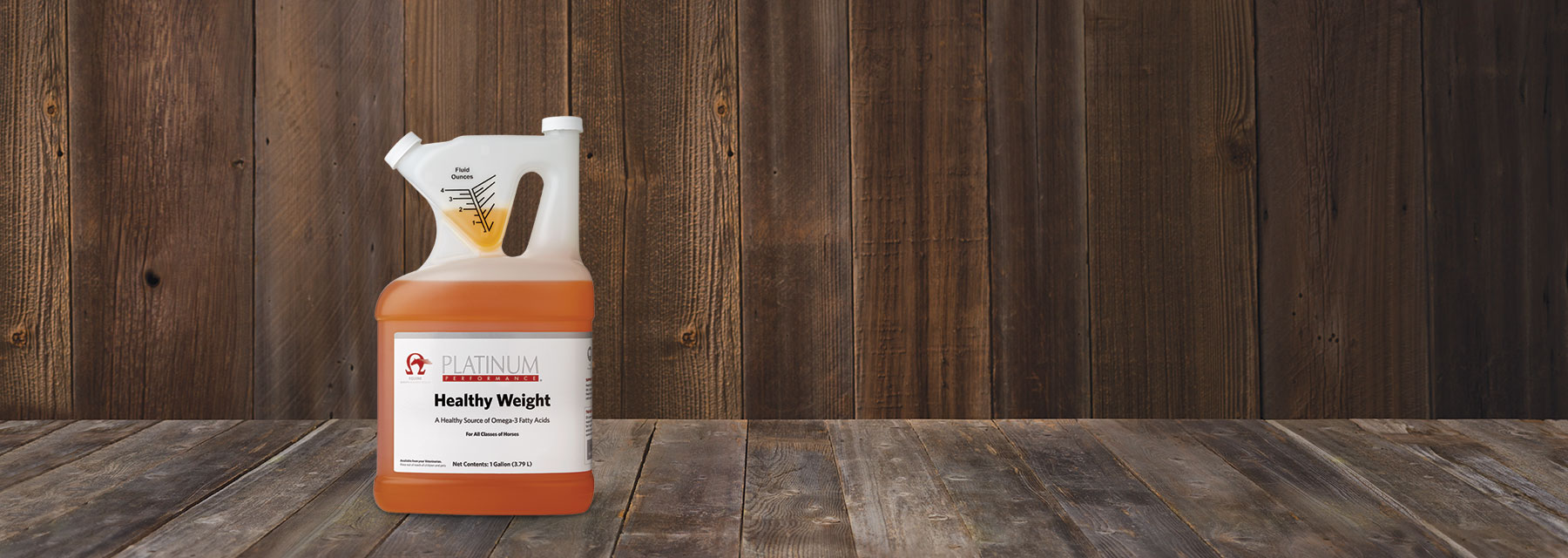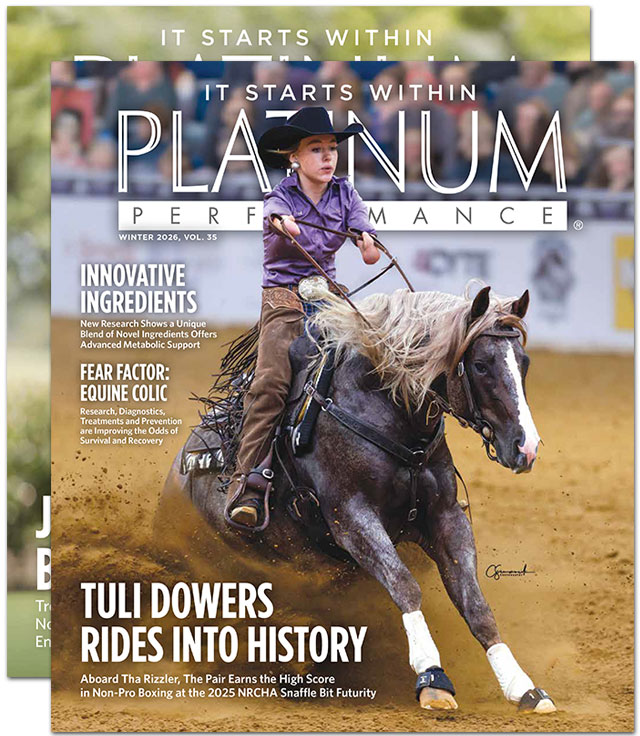Getting A Healthy Source of Omega-3 Fatty Acids
Oils rich in Omega-3 Fatty Acids, such as Flax Oil, can be an excellent way to add cooler burning fuel to the equine diet, as well as support your horse’s health in many ways, including skin and coat, gastric and muscle health in addition to adding calories. With far-reaching benefits, it’s important to make the right choice when selecting an oil, ensuring a beneficial ratio of omega-3 to omega 6 fatty acids.
Omega-3 : Omega-6 Ratio in Common Oils
Studies have shown that when you provide a horse a balanced diet high in omega-3 fatty acids, he will actually utilize his feed better. There are healthier alternatives to putting weight on a horse, such as providing energy-dense flax oil instead of adding more concentrates to the diet.
1 : 0.3
Flax Oil
1 : 2.1
Canola Oil
1 : 7.5
Soybean Oil
1 : 7.8
Vegetable Oil
1 : 46.1
Corn Oil
“When horses are struggling to keep weight on, many clients will feed corn oil, but unlike corn oil, Healthy Weight gives them an anti-inflammatory fat, which makes it ideal to offer to these athletes that perform at such a high level of competition. When I switch horses to Healthy Weight, I see their overall condition improve.”
— Ryan Carpenter, DVM, ACVS, Santa Anita Race Track
Why is the Omega-3 to Omega-6 Ratio Important?
Omega-3 fatty acids are the “good fats” required by every cell in the body to properly function. Unable to produce adequate omega-3s on their own, horses must instead rely on their diet to provide these essential fatty acids.
In contrast, omega-6 fatty acids, though required in moderation, are pro-inflammatory and can have a negative effect on equine health.
Fatty Acid Response to Supplementation
Platinum Performance® has conducted several feeding trials that support the theory that a hay-based diet supplemented with omega-3 fatty acids, generally alpha-linolenic acid in the form of flax, can improve the omega-3 fatty acid profile of circulating red blood cells (RBC) in equine blood.
In 2016, a trial involving healthy retired racehorses compared supplemented vs. non-supplemented horses’s blood levels of omega-3 fatty acids. Blood was drawn and analyzed* every month for six months. The supplemented group received Platinum Performance Equine Wellness plus Healthy Weight Oil (both providing omega-3 fatty acids from alpha linolenic acid). The supplemented group had an 86% increase in RBC omega-3 fatty acid content following supplementation, which is significantly greater than the 36% change in omega-3 fatty acids noted in the non-supplemented control group.
*Tested by a 3rd party, independent lab.

Effects of Platinum Performance Equine Wellness and Healthy Weight Oil on equine blood fatty acids and micronutrients. Tyler Newton, DVM, Tara Hembrooke, PhD, and Meri Stratton-Phelps, DVM, MPVM, DAC VIM (LAIM), DAC VN, Alamo Pintado Center for Biological Medicine.
How to Ensure Purity, Potency and Health Benefits
1 Freshness
Oil has an unpleasant odor when it has turned rancid. If an oil doesn’t smell right, it could be an indicator that the oil is not fresh.
2 Unrefined
When an oil is unrefined, it retains more of its natural compounds and properties for added health benefits.
3 Cold Pressed
When oil is cold pressed from a whole seed, it is protected from damage caused by heat or harsh chemicals.
A Healthy Alternative to Corn Oil
A healthy alternative to corn oil is Platinum’s Healthy Weight, which is made from flax oil, a rich source of omega-3 fatty acids. Healthy Weight is cold pressed and provides the additional calories to support weight gain and also includes a natural source of vitamin E, an antioxidant.
“Platinum Healthy Weight has long been an integral part of my regimen for any of my debilitated patients recovering from systemic illnesses. Its rich source of omega-3 fatty acids reliably encourages weight gain during horses's convalescent period.” says Rodney L. Belgrave DVM , MS, Diplomate ACVIM, Director of Internal Medicine, Vice President of The Mid-Atlantic Equine Medical Center.
Healthy Weight is Recommended to:
- Promote weight gain
- Support normal healthy levels of inflammation
- Add additional calories to the diet
- Support skin and coat health
- Replace other oils in the diet

